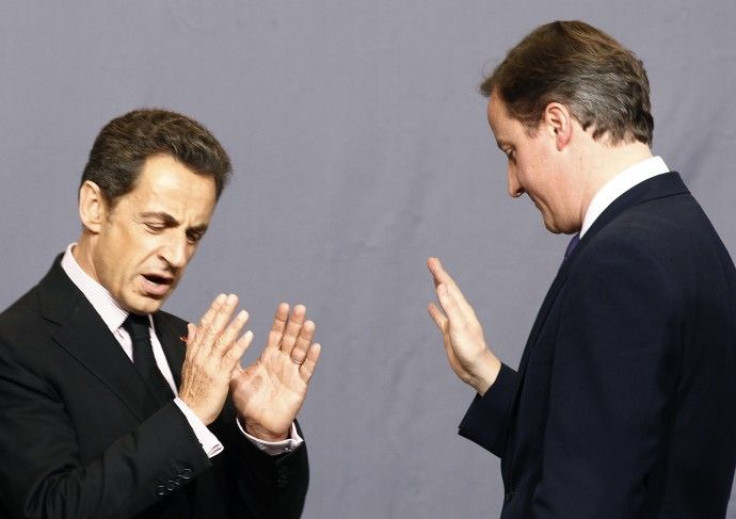Opinion: Europe's Latest Civil War Has Begun

A war is now raging in Europe. On one side are the forces of the corporate state led by Germany and France; on the other are the forces of free-market capitalism led by Britain.
The corporate state is a fully integrated state in which all the elements that go to make it up, from labor to capital, are tied together by a consensual plan. It is an enormously effective model because its peoples’ energies can be applied to achieving an overall objective. It is no coincidence that the nations built upon this model are currently net exporters and have accumulated large trade surpluses.
The free-market state operates under no overarching plan, but instead is driven by the freely made decisions of the individuals who make it up. Historically, such states have been dependent upon trade with peoples outside their political control, and so have been 'open' and decentralized, depending on the decisions of those doing the business.
Now, you would have thought that it would be the free-marketers who would generate the trade surpluses and not the corporatists. However, with an open worldwide trading system already in place, the corporatists found themselves with an advantage. By focusing on exports they could penetrate the trading system with great efficiency, while keeping their peoples’ desire for imports in check. The surpluses they built up were sent back into the trading system to be picked up by the only entities able to handle them: the free-marketers.
Awash with credit, free-market financial institutions had no difficulty finding individuals in their free market economies willing to borrow what they had to offer. But this infinite supply of credit, the other side of the corporatist's surpluses, led to the debt indigestion and chronic sickness the free-market economies are now experiencing.
The Euro was conceived by French corporatists and accepted, reluctantly it has to be said, by German corporatists. It is doubtful if the other nations that signed up, such as Greece, Portugal, Spain, Italy and Ireland, had any idea that they were implicitly signing up to a European corporate state. Britain saw the dangers, and while expressing their enthusiasm for a European free-market, declared their implacable opposition to a European corporate state.
So now that Europe's civil war -- which is actually a global war -- has come into the open, what's to be done?
Wars end with a victor -- but even victors are transformed by the process and Europe's civil war will be no different. The corporate state offers its citizens clear benefits. It is generally well-organized, tends to be stable until it ceases to be, and for so long as it delivers, is perceived by its citizens as fair.
By contrast, the free-market state can look disorganized and the competition between individuals implicit in its design can sometimes be unsettling, particularly when one part of it runs wild on account of lax regulation.
But the great advantage of the free-market state is that its open structure allows it to respond to people's changing needs progressively in a way the closed structure of the corporate state does not. The free-market state does this by encouraging more than one approach to solving problems. This redundancy, however, comes at a price which only large economic groupings (like the United States) can reasonably afford, and this is why free-marketers see much in the European Union they can applaud.
But a European corporate state? Surely not even the Germans or French want that.
A single currency for the EU undoubtedly has advantages, but its adoption should have been a technical matter, not a political one, with the mechanisms for integration clearly thought through and rigorously applied by an independent body, such as the European Central Bank. Hitching the economic wagon to the political mule was folly in the extreme.
There certainly needs to be pan-European regulation, properly enforced, an effective Council of Ministers, and quite possibly defense should be a shared expense. I am less convinced that Europe needs an elected parliament, but that is an issue for another day.
Europe's great strength is its combined diversity so if the civil war that has broken out destroys that, there may be victors but there will be no winners.
Robert Mercer-Nairne is a hereditary British lord and the author of “Notes on the Dynamics of Man”
© Copyright IBTimes 2024. All rights reserved.











